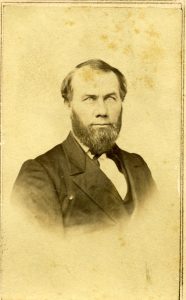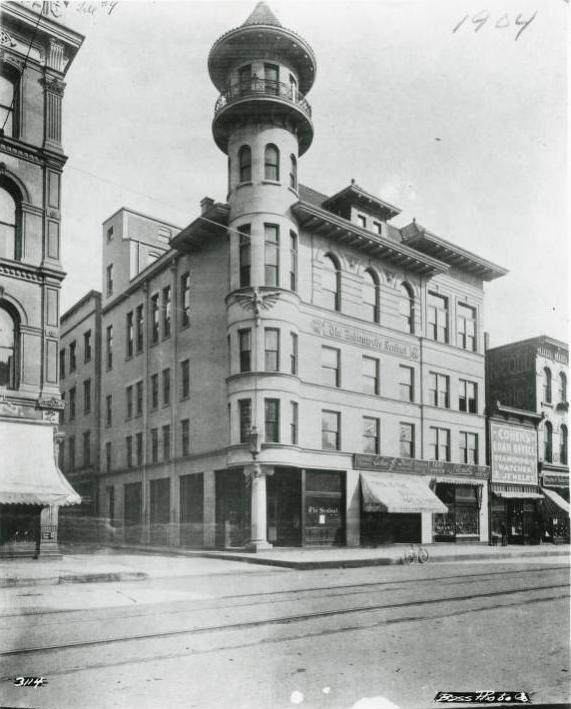
Photo info ...
(Jan. 6, 1815-Jan. 12, 1896). Born in New York City, Bingham migrated to the Midwest where he engaged in a wide variety of occupations. After serving as editor of the he moved to Indianapolis in 1856 and became editor in chief of the , purchasing an interest in the paper. He sold his interest in July 1865, but returned as editor when in April 1868, Richard J. Bright acquired ownership.

Bingham retired from newspaper work in 1874. He later served as deputy auditor of Indiana for two years, compiled and published books on Indiana statutes and laws, and from 1871 to 1887 served on the Indianapolis Board of School Commissioners.
Bingham, who was chair of the Democratic State Central Committee during the , was critical of both President Lincoln’s and Governor administrations. He briefly joined the Sons of Liberty, a group considered treasonous by the state. Bingham was arrested in the fall of 1864 along with several others allegedly involved in a plot against the state (see ). The charges against him were dropped prior to the trial, and he testified as a witness for the prosecution.
CITE THIS ENTRY
APA:
Cunningham, J. (2021). Joseph Jenkins Bingham. Encyclopedia of Indianapolis. Retrieved Feb 15, 2026, from https://indyencyclopedia.org/joseph-jenkins-bingham/.
MLA:
Cunningham, Joan. “Joseph Jenkins Bingham.” Encyclopedia of Indianapolis, 2021, https://indyencyclopedia.org/joseph-jenkins-bingham/. Accessed 15 Feb 2026.
Chicago:
Cunningham, Joan. “Joseph Jenkins Bingham.” Encyclopedia of Indianapolis, 2021. Accessed Feb 15, 2026. https://indyencyclopedia.org/joseph-jenkins-bingham/.

Help improve this entry
Contribute information, offer corrections, suggest images.
You can also recommend new entries related to this topic.